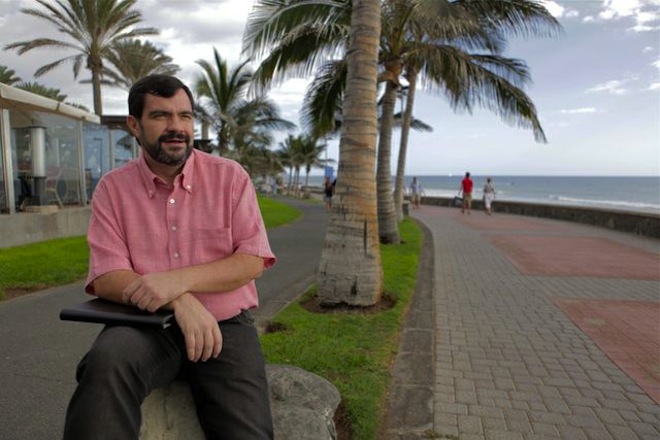Man without e-mail

When Luis Suarez decided to change his own world and live without emails, many colleagues felt that this could be his fatal mistake. In the end, Louis works at IBM, one of the companies that has been actively working on the development of electronic communication software through letters for a long time.
But Louis was firmly determined to "cut the wire" - like any other office worker of the 21st century, he had to respond daily to a huge number of emails, in truth, even more than he would like in his wildest dreams.
If you think that Luis Suarez never had a serious deal with electronic correspondence, as such, which allowed him to “easily” refuse it - this is confirmation that it is not so: Louis sharpened his teeth as a professional in the field of communications in the IBM mainframe technical support team in the Netherlands, back in the 90s of the last century. Four years ago, he worked for the IBM BlueIQ Social Media Team, which worked on social media understanding and worked closely with the company's sales team. As you probably remember, four years ago, all these “social media” were not as developed as they are today and very “overheated”.
')
It was then that Louis earned his reputation as a social media star within the company, which ultimately led him to spend a lot of time just answering questions and delegating work through email. It took a little time to realize how counterproductive it was, and also, in his words: “discourages the desire to do something in principle, besides answering letters”. “I was very tired of having to do someone else’s work, instead of doing my own important things,” adds Suarez.
For all these reasons together, in February 2008, Louis stopped responding to letters and writing them himself. He has not erased his entire box and, in truth, still comes to check it once a day (which, in his own words, takes two minutes - most of the letters that arrive in his mailbox are banal notifications about various internal companies. events and meetings), although it is recognized that sometimes it uses mail for rare tête-à-tête conversations on important topics. But otherwise (98% of the email load), Luis Suarez answers all those people who write to him or ask their questions through social media and offer to continue the communication on Twitter, Google+ or in Connections - the company's internal social network. His main argument is the following: if communication is open to all, then much less time is spent on it.
Of course, the case of Luis Suarez is to some extent extreme, but it perfectly illustrates the migration of the entire Internet-socially developed part of humanity from emails to social networks and services. For many of us, Facebook and Twitter have long since successfully replaced e-mail, at least in part. As for the largest social network of our time - Facebook, there they are trying to integrate online correspondence with letters into their own service (providing email addresses of the form user@facebook.com) so that more than 800 million users will not leave the site. And even an old-school giant like IBM uses the same approach.
Louis is perhaps the most well-known "ibiemer" who threw the electronic correspondence aside, but far from the only one. He himself admits that he was followed by several dozen colleagues inspired by such an example.
Juliana Leng is the same person without an e-mail. Like Suarez, she doesn’t manage to completely do without electronic correspondence by letters, but when a colleague asks her a question in the mail, she answers with the help of Connections. This is more effective, as Julian notes, but, even more important, it allows you to keep all the answers in the public domain, thus accumulating knowledge and information.
So, four years after the start of this brave experiment, Suarez no longer looks like a lonely madman on the island (the funny thing here is that he really lives on the island - Grand Canary Island, where he moved several years ago to enjoy " the beach, the sun and the mountains "). Rather, he is a proud visionary who does not want to do someone else’s work and waste time on useless or meaningless correspondence.
Finally, there is one more small detail. Luis dropped about 20 kilograms and, in part, he thanks for this precisely his refusal of e-mail: “Since I no longer spend a huge amount of time on e-mail - I have enough time to do other things.”
Source: https://habr.com/ru/post/137041/
All Articles